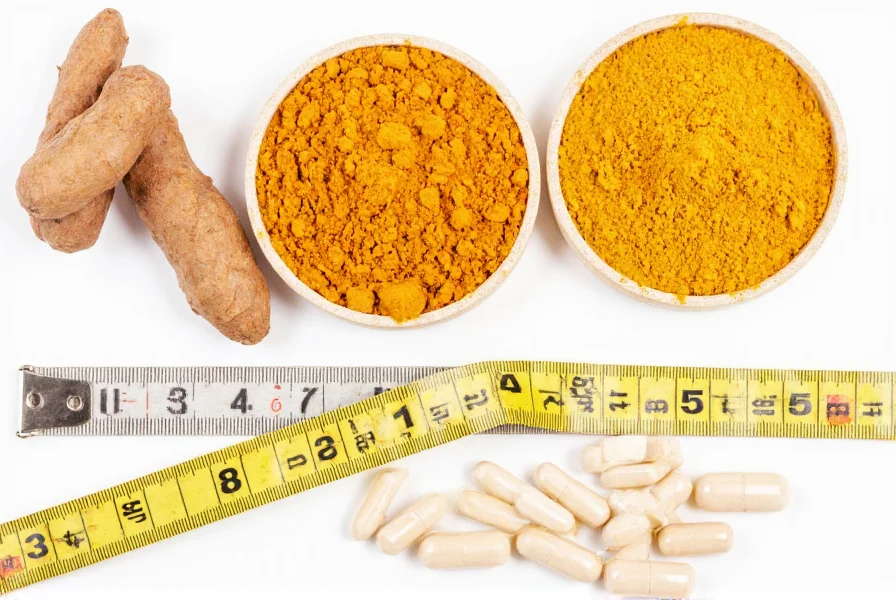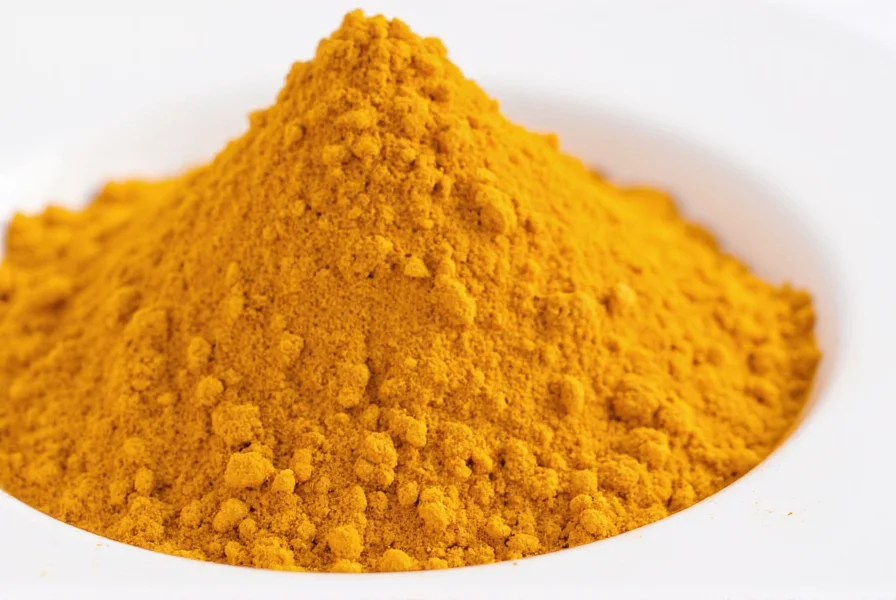Curcumin, the primary bioactive compound in turmeric, has gained attention in weight management research due to its potential effects on inflammation, metabolism, and fat regulation. While turmeric alone won't cause significant weight loss, emerging evidence suggests it may provide modest support when incorporated into a comprehensive weight management plan.
The Science Behind Turmeric and Weight Management
Multiple clinical studies have investigated curcumin's role in weight management. A 2020 meta-analysis published in Phytotherapy Research reviewed 11 clinical trials involving over 1,000 participants. The analysis found that curcumin supplementation (typically 80-1,000 mg daily) resulted in statistically significant but modest reductions in body weight, BMI, and waist circumference compared to placebo groups.
The mechanisms through which curcumin may support weight management include:
- Anti-inflammatory effects: Chronic inflammation is associated with obesity and metabolic disorders. Curcumin's potent anti-inflammatory properties may help address this underlying factor.
- Adipogenesis regulation: Research suggests curcumin may influence fat cell development and metabolism.
- Improved insulin sensitivity: Some studies indicate curcumin may help regulate blood sugar levels, potentially reducing fat storage.
- Metabolic support: Preliminary evidence suggests curcumin might enhance certain metabolic processes.
| Study Duration | Curcumin Dosage | Average Weight Change | Key Findings |
|---|---|---|---|
| 8 weeks | 800 mg/day | -1.88 lbs vs placebo | Significant reduction in BMI and waist circumference |
| 30 days | 1,000 mg/day | -2.9 lbs vs placebo | Improved lipid profiles and reduced inflammation markers |
| 12 weeks | 90 mg/day (with piperine) | -3.1 lbs vs placebo | Enhanced metabolic parameters and reduced body fat percentage |
Realistic Expectations for Turmeric Weight Loss
When examining does turmeric help with weight loss, it's crucial to maintain realistic expectations. The scientific evidence for curcumin for weight management shows modest effects at best. Most studies demonstrating positive results used standardized curcumin extracts with enhanced bioavailability (often combined with piperine from black pepper), not regular turmeric powder from your kitchen.
Research indicates that turmeric's potential weight management benefits work through supporting metabolic health rather than directly causing fat burning. The scientific evidence turmeric weight loss connection suggests it may be most beneficial for individuals with obesity-related inflammation.
Practical Usage Guidelines
For those interested in incorporating turmeric for potential weight management support, consider these evidence-based recommendations:
- Form matters: Standard turmeric powder has low curcumin concentration (2-8%) and poor bioavailability. Supplements with enhanced absorption (like those containing piperine) show better results in studies.
- Dosage: Most research uses 500-2,000 mg of curcumin daily, typically divided into multiple doses. The effective dose for turmeric supplement dosage for weight loss appears to be at least 800 mg of standardized curcumin extract.
- Timing: Taking curcumin with meals containing healthy fats may improve absorption.
- Consistency: Benefits appear after several weeks of consistent use.

Safety and Considerations
Turmeric is generally safe when consumed in food amounts, but higher doses used in supplements may cause gastrointestinal issues in some people. The turmeric and inflammation weight loss connection appears strongest for individuals with elevated inflammation markers.
Important considerations:
- Curcumin may interact with blood thinners and diabetes medications
- Pregnant women should consult healthcare providers before using high-dose supplements
- Quality varies significantly among supplements - look for third-party tested products
- Turmeric alone won't overcome poor dietary habits or sedentary lifestyle
Comprehensive Weight Management Approach
While exploring how turmeric affects metabolism, remember that sustainable weight management requires a multifaceted approach. Turmeric may provide modest support as part of a strategy that includes:
- Nutritionally balanced diet with appropriate calorie intake
- Regular physical activity
- Adequate sleep and stress management
- Professional guidance when needed
The realistic expectations for turmeric weight loss should focus on its potential role as a complementary support rather than a primary solution. When used alongside other evidence-based weight management strategies, turmeric may contribute to modest improvements in metabolic health that support weight loss efforts.

Conclusion
Turmeric shows promise as a complementary element in weight management strategies, particularly through its anti-inflammatory properties. However, it's essential to approach turmeric for lose weight claims with realistic expectations based on current scientific understanding. The evidence supports modest benefits when using standardized curcumin extracts as part of a comprehensive approach to weight management, not as a standalone solution.
Frequently Asked Questions
How much weight can I realistically lose with turmeric supplementation?
Based on clinical studies, most research shows modest additional weight loss of 1-3 pounds over several months when curcumin supplements are combined with diet and exercise, compared to control groups. Turmeric alone is not an effective weight loss solution.
What's the most effective way to take turmeric for potential weight benefits?
For potential weight management support, research suggests using standardized curcumin extracts (500-1,000 mg) with enhanced bioavailability (often containing piperine), taken with meals containing healthy fats. Regular turmeric powder has much lower curcumin concentration and poor absorption.
How long does it take to see results from turmeric for weight management?
Most clinical studies showing benefits used curcumin supplementation for 8-12 weeks. Individual results vary, but consistent use for at least 2-3 months is typically needed to assess potential effects, alongside diet and exercise changes.
Can I get the same benefits from cooking with turmeric instead of taking supplements?
Regular culinary use of turmeric provides some health benefits but likely not enough curcumin for significant weight management effects. It would require consuming impractical amounts (several tablespoons daily) to match the curcumin doses used in studies (500-1,000 mg).











 浙公网安备
33010002000092号
浙公网安备
33010002000092号 浙B2-20120091-4
浙B2-20120091-4